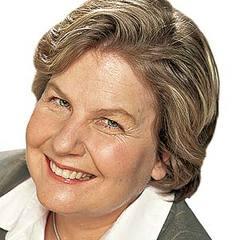Charles Dickens Quotes - Page 24
Charles Dickens (2013). “Delphi Complete Works of Charles Dickens (Illustrated)”, p.14344, Delphi Classics
[I]t seemed as if the streets were absorbed by the sky, and the night were all in the air.
Charles Dickens (1865). “Our Mutual Friend”, p.119
Charles Dickens (1870). “The Posthumous Papers of the Pickwick Club”, p.61
CHARLES DICKENS (1867). “LITTLE DORRIT”, p.501
Renunciation remains sorrow, though a sorrow borne willingly.
"The Mill on the Floss". Book by Charles Dickens, 1860.
Charles Dickens (2016). “The Pickwick Papers: The Posthumous Papers of the Pickwick Club”, p.169, Pan Macmillan
Charles Dickens (2015). “British Classics: A Tale of Two Cities (Illustrated)”, p.125, The Planet
Charles Dickens (2016). “British Classics: Great Expectations”, p.52, The Planet
There is a passion for hunting something deeply implanted in the human breast.
Oliver Twist ch. 10 (1838)
Charles Dickens (2012). “David Copperfield”, p.347, Courier Corporation
... The sun does not shine upon this fair earth to meet frowning eyes, depend upon it.
Charles Dickens (1843). “The life and adventures of Nicholas Nickleby”, p.71
Charles Dickens, Peter Preston (1998). “The Mystery of Edwin Drood and Other Stories”, p.388, Wordsworth Editions
Charles Dickens (1861). “Great Expectations”, p.248
There is nothing truer than physiognomy, taken in connection with manner.
Charles Dickens (1861). “The Lamplighter's Story; Hunted Down; the Detective Police; and Other Nouvellettes”, p.21
Charles Dickens (2013). “Dickens' Christmas Spirits: A Christmas Carol and Other Tales”, p.91, Courier Corporation
Charles Dickens (1867). “Charles Dickens's works. Charles Dickens ed. [18 vols. of a 21 vol. set. Wanting A child's history of England; Christmas stories; The mystery of Edwin Drood].”, p.91
CHARLES DICKENS (1871). “THE MYSTERY OF EDWIN DROOD, MASTER HUMPHREY'S CLOCK, AND SKETCHES BY "BOZ".”, p.122
Charles Dickens (1872). “Our Mutual Friend”
"Household Words: A Weekly Journal".







